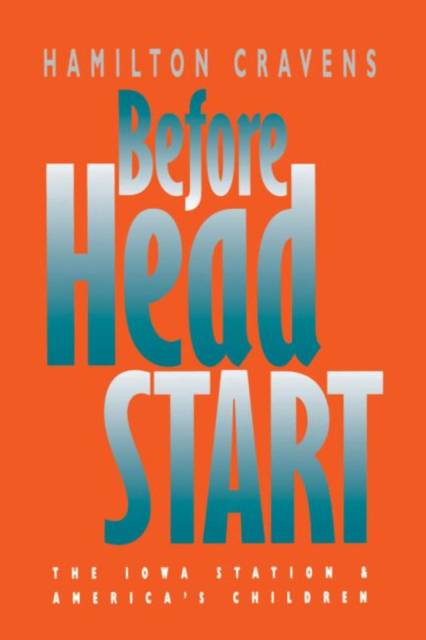
- Afhalen na 1 uur in een winkel met voorraad
- Gratis thuislevering in België vanaf € 30
- Ruim aanbod met 7 miljoen producten
- Afhalen na 1 uur in een winkel met voorraad
- Gratis thuislevering in België vanaf € 30
- Ruim aanbod met 7 miljoen producten
Zoeken
€ 76,95
+ 153 punten
Omschrijving
Between the 1920s and the 1950s, the child welfare movement that had originated as a moral reform effort in the Progressive era evolved into the science of child development. In Before Head Start, Hamilton Cravens chronicles this transformation, both on the national level and from the perspective of the field's best-known research center, the University of Iowa's Child Welfare Research Station. Addressing the changing role played by women and the importance of Rockefeller philanthropy, he shows how a women's reform movement became a male-dominated, conservative profession and demonstrates how lay pressure groups can influence the structures and processes of science. Animated by the reformist goals of the child welfare movement, scientists at the Iowa Station challenged the pervasive idea that an individual's development was determined by such group traits as race, class, and gender. Instead, their research suggested that early social intervention could rescue a child from a grim future. Cravens argues that this individualistic perspective, rejected in the 1940s by a scientific community that mirrored society's deterministic notions, anticipated the national social reforms of the post-1950s era, including Head Start.
Specificaties
Betrokkenen
- Auteur(s):
- Uitgeverij:
Inhoud
- Aantal bladzijden:
- 348
- Taal:
- Engels
Eigenschappen
- Productcode (EAN):
- 9780807854327
- Verschijningsdatum:
- 30/07/2002
- Uitvoering:
- Paperback
- Formaat:
- Trade paperback (VS)
- Afmetingen:
- 155 mm x 237 mm
- Gewicht:
- 485 g

Alleen bij Standaard Boekhandel
+ 153 punten op je klantenkaart van Standaard Boekhandel
Beoordelingen
We publiceren alleen reviews die voldoen aan de voorwaarden voor reviews. Bekijk onze voorwaarden voor reviews.











